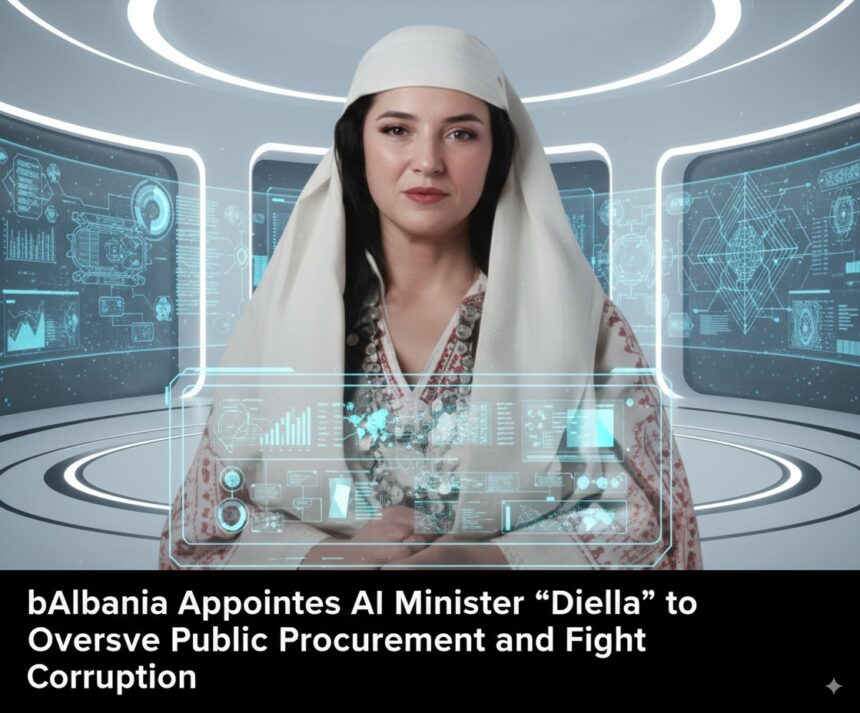Albania has appointed an artificial intelligence system named Diella as its Minister for Public Procurement, marking what officials describe as the world’s first AI cabinet member. The virtual minister will oversee public tenders and procurement processes as part of a broader effort to curb corruption and increase transparency, a move that has drawn both international attention and domestic controversy.
Diella, whose name means “sunshine” in Albanian, began life as a virtual assistant on the government’s e-Albania portal, guiding citizens through administrative services. The system was later expanded and formally given ministerial responsibilities by the prime minister. Managed by the National Agency for Information Society (AKSHI), Diella interacts with users through voice commands on the e-Albania platform and is represented by a digital avatar wearing traditional Albanian attire.
Under her new mandate, Diella will evaluate and oversee procurement contracts that were previously handled by human officials. Government officials say transferring procurement oversight to an AI will help reduce bribery, favoritism and conflicts of interest in public spending by applying consistent, rule-based scrutiny without personal interests.
Authorities point to Diella’s operational record on the e-Albania portal, where the system has already processed over one million service interactions, as evidence of its capacity to handle public-facing tasks. Supporters argue that an AI-driven procurement system could deliver a level of transparency and impartiality that has been difficult to achieve with human administration, and they frame the appointment as part of a wider anti-corruption and modernization push tied to the country’s European Union ambitions.
The appointment has prompted legal and ethical objections. Opposition politicians, notably the Democratic Party of Albania, have questioned whether assigning a ministerial role to a non-human entity is constitutional and have described the move as largely symbolic. Critics also warn about oversight gaps, data security risks and the potential for algorithmic bias in decision-making processes.
Public reaction has been mixed, ranging from praise for technological innovation to skepticism and mockery that an AI minister may not be able to overcome entrenched political practices. International observers have noted the appointment as a landmark experiment in the use of artificial intelligence in government, one that raises broader questions about accountability, governance and the limits of automation in public administration.
For now, Diella stands as a high-profile test of whether AI can meaningfully reduce corruption and increase transparency in procurement, while also prompting debate about legal frameworks, safeguards and the future role of automated systems in democratic institutions.











